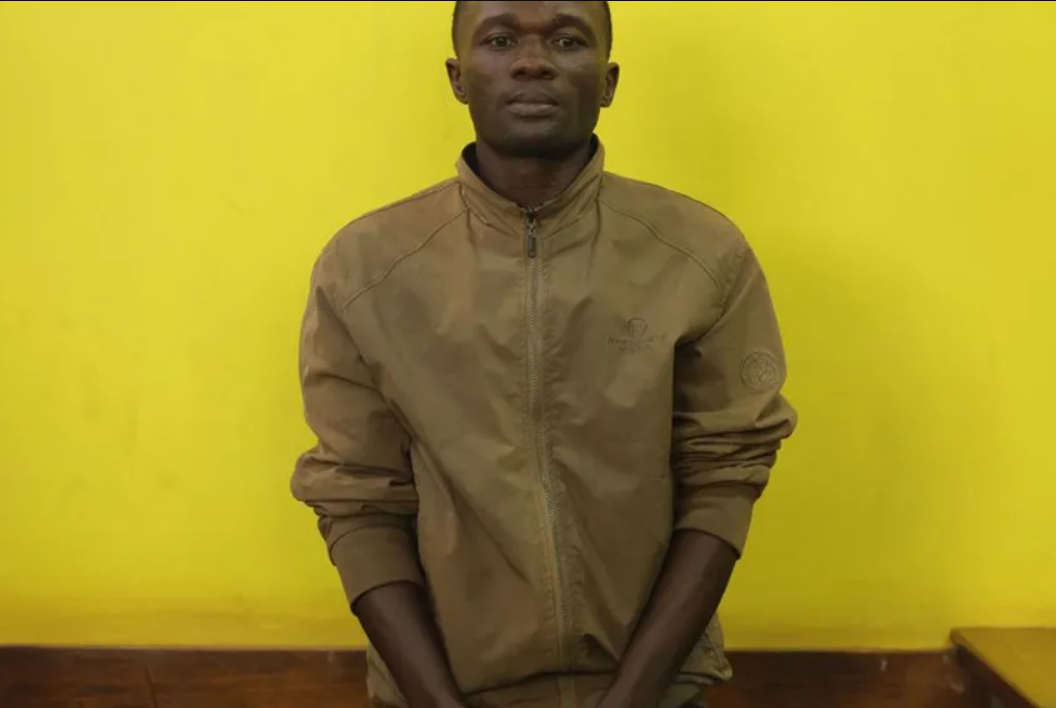Kenyan Serial Killer Allegation: Confession and Police Actions Spark Controversy
A horrifying case involving a suspected serial murderer has surfaced in Nairobi, Kenya, casting doubt on the honesty and fairness of the police and the judicial system. This news has shaken the country to its core. Collins Jumaisi Khalusha, 33, is the prime suspect in a series of killings that have rocked the nation.
Case Background Information
The gruesome discovery of nine dismembered corpses in an abandoned quarry in Nairobi brought the case to light. On Monday, Khalusha was apprehended after an extensive police investigation that began with this horrific discovery. Reports indicate that Khalusha admitted to killing 42 women, including his wife, starting in 2022.
Khalusha was allegedly apprehended in a bar as he was observing the 2024 European Football Championship final, a match between England and Spain. After they had him in custody, they searched his home close to the crime scene. Allegedly, a laptop, ten cell phones, identification cards, and female-specific clothes were among the major artifacts found during the search.
A Debate Over the Confession
But things have gotten heated since John Maina Ndegwa, Khalusha’s lawyer, has strongly rejected the confession’s veracity. While arguing his client’s torture case in a Nairobi courtroom, Ndegwa called the idea of a voluntary confession “laughable.”
Concerns over possible human rights abuses have been raised by the defense lawyer’s assertions, which have cast a shadow over the probe. According to Ndegwa, Khalusha seemed visibly distressed throughout the court hearings; he was described as “terrified and in anguish.” A comprehensive inquiry into the techniques employed to elicit the confession has been demanded in response to these accusations.
Proceedings in Court and the Role of the Police
Prosecutors have rejected the idea that the suspect was abused, contrary to what the defense has said. In order to facilitate more investigations, the court has decided that Khalusha can be detained for a month. This ruling highlights how complicated the matter is and how important it is to conduct a thorough investigation into the accusations.
So far, the evidence points to Khalusha as the prime suspect in the murders, according to the police. The Mukuru quarry has been closed off after the discovery of the bodies in different degrees of decay. Law enforcement has determined that all of the victims were female, ranging in age from 18 to 30 and that there is evidence of consistent murder methods that suggest a single assailant.
What the Public Thinks and More General Consequences
As a result of the horrific atrocities committed and the mysteries surrounding how they remained undiscovered for an extended time, the case has sparked widespread public anger in Kenya. There have been demands for better investigative methods and increased scrutiny of police actions as a result of this.
Furthermore, debates on the behavior of the Kenyan police force have been rekindled by the torture accusations. An inquiry into the fatalities and abductions that occurred during the most recent anti-government rallies is underway, and the country’s police force has a history of human rights abuse allegations. Because of this, discussions regarding accountability and reform in law enforcement have centered on this case.
Final Thoughts and Plans for the Future
Collins Jumaisi Khalusha’s case is getting a lot of attention in Kenya right now because the inquiry is ongoing. More forensic analyses, court hearings, and maybe a fresh look at the confession at the heart of the scandal are on the horizon for the next few weeks.
The case’s resolution may affect future rules in Kenya’s criminal justice system regarding the questioning of suspects, the gathering of evidence, and police behavior, among other areas. In the midst of this national crisis, the pursuit of justice for the victims and their families must take precedence while also safeguarding the rights of the accused and ensuring that they receive due process.
The difficulties encountered by the legal system and law enforcement in managing high-profile, intricate criminal investigations are sharply illustrated by this case. The need to strictly follow legal processes and human rights standards cannot be overstated, regardless of how horrifying the crimes may be.



















